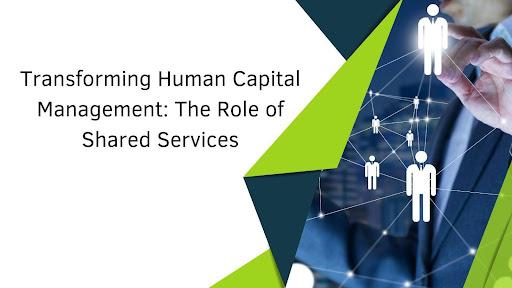Transforming Human Capital Management: The Role of Shared Services
The evolving landscape of Human Capital Management (HCM) is examined by Sharath Chandra Vanamwho highlights how shared services are reshaping HR functions to meet modern needs. This approach optimizes costs, standardizes processes, and leverages technology, transforming workforce management significantly.
Centralizing HR for Greater Efficiency
The shared services model in HCM centralizes HR functions into a unified unit, consolidating tasks such as payroll, recruitment, benefits, and training. This approach streamlines operations, replacing traditional decentralized models, and ensures efficient management. By standardizing practices and applying consistent policies, companies improve compliance, enhance efficiency, and maintain regulatory standards, while aligning HR practices with organizational objectives.
Cost Optimization Through Economies of Scale
A primary reason for adopting shared services in HCM is cost efficiency. Centralizing HR functions allows companies to achieve economies of scale, utilizing resources more effectively and eliminating redundancies. For example, one team managing payroll organization-wide is more cost-effective than multiple teams. This model reduces labor, technology, and operational costs, with studies showing potential savings of 30-50% in HR operations, enabling reinvestment to drive growth and competitiveness.
Enhancing Service Delivery and Quality
Transitioning to shared services often improves service quality by centralizing HR functions, allowing teams to implement best practices and leverage specialized expertise. This creates centers of excellence focused on continuous improvement, enhancing service delivery and making HR more customer-centric. Shared services also incorporate self-service portals and helpdesk systems, which enhance the user experience and free HR professionals to focus on strategic initiatives rather than routine administrative tasks.
Leveraging Technology for Better Data Management
Technology is central to the shared services model, with Human Resource Information Systems (HRIS) and Enterprise Resource Planning (ERP) systems providing the foundation for data management and automation. These systems enable companies to manage HR data more efficiently, offering real-time access and supporting data-driven decision-making. Automation increases efficiency by handling routine tasks like payroll processing, reducing errors, and allowing HR professionals to focus on value-adding activities such as talent development, optimizing processes, and ensuring compliance.
Scalability and Flexibility to Meet Changing Needs
The shared services model’s key advantage is scalability, allowing HR services to adapt easily to organizational changes like growth, mergers, or restructuring. This flexibility ensures HR functions evolve with business needs, minimizing disruptions and enabling quick responses to regulatory updates or strategic shifts, maintaining competitiveness.
Overcoming Challenges in Implementation
Implementing shared services in HCM provides substantial benefits but also poses challenges. Change management is a significant hurdle, as shifting to a centralized model often encounters resistance from employees used to decentralized operations. Effective communication and training are essential for overcoming these barriers and ensuring a smooth transition. Maintaining service quality across regions is challenging, requiring a balance between standardized processes and local needs while addressing cultural and language differences. Technical issues also arise when integrating existing systems; careful planning, a phased approach, and strong data governance can help mitigate these risks.
Measuring the Impact of Shared Services
For shared services success, organizations need performance metrics and accountability. Service Level Agreements (SLAs) and Key Performance Indicators (KPIs) are vital for tracking HR service quality and timeliness. Regular monitoring and reviews drive continuous improvement and sustained organizational value.
Looking Ahead
As the shared services model in HCM evolves, its role in transforming HR functions grows increasingly important. Centralizing tasks, optimizing costs, and leveraging technology enhance efficiency and strategic focus, shaping the future of HCM amid changing workforce and business needs.
In conclusion, Sharath Chandra Vanam emphasizes that despite challenges, shared services in HCM provide significant benefits beyond cost savings. With strategic planning, effective change management, and a focus on quality, organizations can enhance HR functions, drive data-driven decisions, and align HR with business strategies.


Comments are closed.